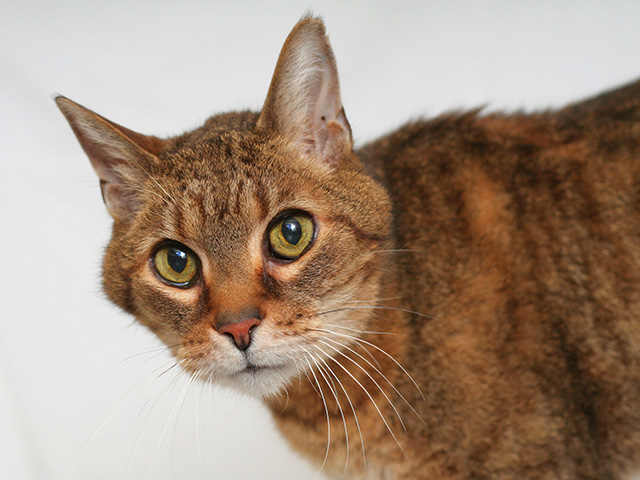|
Advocating for the animals... read more |
|||
| If you do not see the full page with images, please click here. | |||
 |
|||
|
Coming Together for Cats |
|||
|
The issue of homeless cats is one that Ottawa and the Ottawa Humane Society have constantly grappled with. With the support of the community, the OHS has taken many steps to address cat homelessness — from the Mobile Spay/Neuter Service and microchip clinics, to marketing and education campaigns on pet safety and identification. But so many cats still come to the OHS, and local animal care partners see the same trend. There is more to be done. On Nov. 16, 2022, the OHS hosted Ottawa's first-ever Community Cat Summit. Dr. John Boone, renowned wildlife biologist, facilitated the workshop, focusing on the science behind free-roaming cats. Participants brought insights into their day-to-day operations, challenges and successes managing free-roaming cats with the goal of working together to better support cats in Ottawa. While there were many important takeaways from Dr. Boone's presentation, the most heart-wrenching was that the greatest victims — and those least seen — are the many young kittens born outside who suffer and lead lives that are cut horribly short. Perspectives on cats in the community and responsibility to these animals must change. Efforts are needed for sterilization, and providing a safe world for cats to live in: either indoors, or outdoors safely supervised by their owner. Until then, too many cats will continue to suffer. Collecting and analyzing data to understand what is happening in a geographical area, and using that data to develop local initiatives is key to supporting cat populations. However, collecting that data can be challenging. The next step the OHS is taking is forming a community cat coalition involving key rescue groups in the area. This group will work together to provide immediate help to more cats and will also develop a data collection plan to assess free-roaming cats in Ottawa. There are many more actions to come from the Community Cat Summit — stay tuned for more information on how you can help prevent cats from becoming homeless. |
|||
|
Give Love, Not Animals |
|||
|
A new puppy or a playful kitten may seem like the perfect gift for the holiday season. However you may want to think twice before surprising someone this year with a new pet. Pets are a lifetime commitment that not everyone is prepared to make. As the novelty of a new pets wears off, the animal becomes an adult, and the expenses of caring for the pet begin to mount, someone who found an animal under their tree might have second thoughts about keeping the animal. Pets shouldn't be a surprise, but the holidays can be a great time to bring a new pet home as you will likely have more time to spend with the pet and help them adjust to their new home. As well, adopting a pet for a child is a bit different as the child will not be the pet's primary caregiver. The OHS strives to make the perfect match between people and animals. Having both meet before sending the animal to their new home and ensuring the family is prepared to meet the animal's needs is crucial. For someone looking for a new pet around the holidays, the perfect gift could be taking them to the OHS to meet their match and perhaps covering the adoption fee. Adoption is the best way to bring a new animal into your life, but if you're thinking about getting an animal from another source, there are steps you can take to make sure you’re working with someone who considers the animal's best interests. No matter how you decide to find your new friend, it's always important to make sure the animal isn't a surprise and that the family receiving them is prepared to meet their needs. |
|||
|
Keep Cats Safe this Winter |
|||
|
Cats belong indoors, and during the harsh winter months, the outdoors poses an even greater risk to cats. A cat that might have been relaxed and comfortable in autumn may now be shivering and freezing to death in the snow. The outdoors is no place for a cat. Some cats may be able to tolerate the cold for a short period of time, but their situation can change rapidly. A cat who does not seem comfortable in the cold is likely in danger and needs help. Cats endangered by extreme cold can be immediately admitted into OHS care. If you find a cat who needs help, call Ottawa By-law Services at 3-1-1. |
|||
|
|
|||
|
Homeless and Vulnerable Animals Need YOU |
|||
|
Biscuits, a sweet one-year-old cat, fell from a fourth floor window and fractured his leg. You can only imagine the pain he was in. Despite his injury, he was very loving and affectionate with OHS staff and volunteers. OHS veterinarians X-rayed his broken leg. After a careful evaluation, the best option for Biscuits to live a happy, pain-free life was to remove his terribly broken leg. Biscuits recovered incredibly well from his surgery and has found his forever home. Will you give animals like Biscuits a second chance at life? Your gift today will ensure that other homeless, injured animals like Biscuits receive the medical treatment, love and compassion they desperately need. |
|||
| Thank you to our sponsors: | |||
|
|
|||
| Ottawa Humane Society 245 West Hunt Club Rd, Ottawa, ON K2E 1A6 donations@ottawahumane.ca | www.ottawahumane.ca |
|||
|
|
|||
|
The Standards Program Trustmark is a mark of Imagine Canada used under licence by the Ottawa Humane Society. The Humane Canada Accreditation Program mark is a licenced mark of Humane Canada used under licence by the Ottawa Humane Society. |
|||
| Privacy Statement Manage your Email Preferences |









